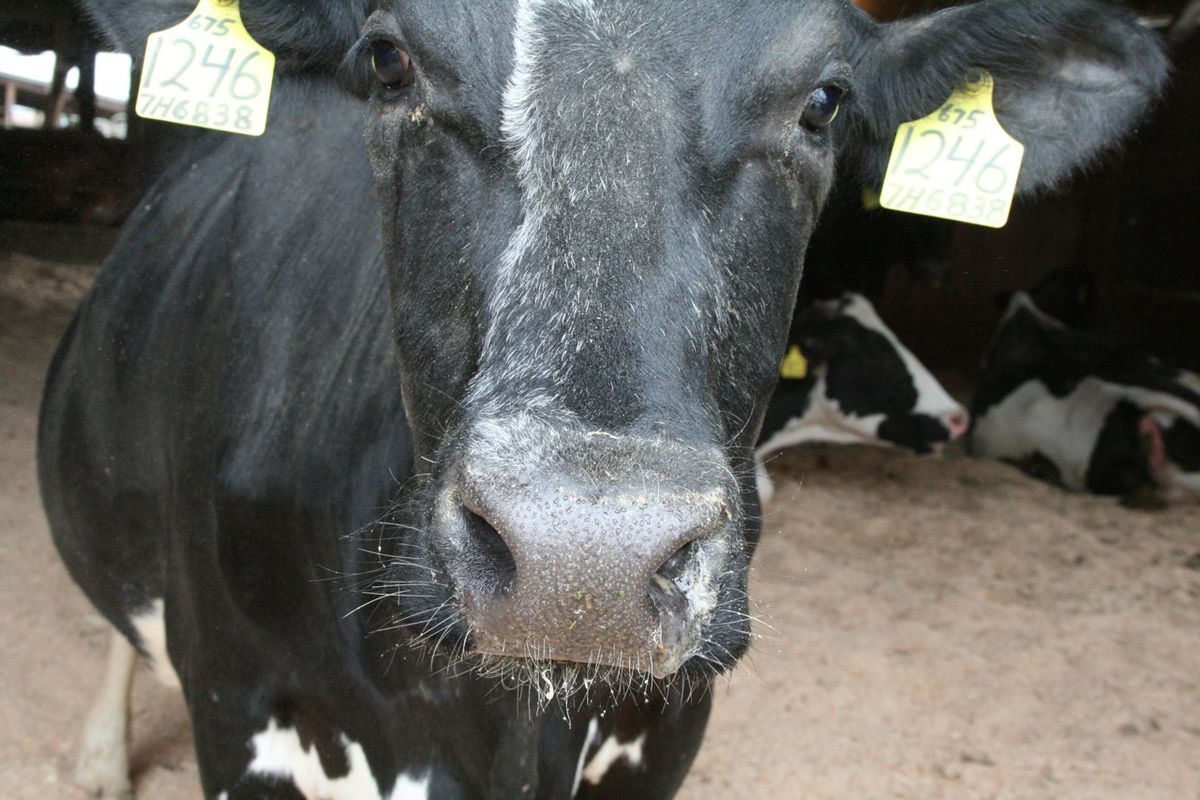Field Trips
Interest Growing in Agritours

You’ve read Michael Pollan’s books about the food industry. You’ve watched Food Inc. You cringed when Jamie Oliver showed kids how chicken nuggets are made on “Food Revolution.”
If you’ve made it this deep into your quest to find out where food comes from, you’re ready for the next step: visit farms and ranches where the stuff we put in our mouths gets its start.
Agricultural tourism (also called “agritourism”) is a growing trend among travelers. “People get a completely different appreciation and understanding” when they step foot on a farm, said Jennifer Hall, general manager of Main Market, Spokane’s new food cooperative. “And they have a great time.”
If you want to dig into agritourism, where do you begin? Do you just show up at an organic dairy farm and introduce yourself? Are there guided bus tours led by hosts dressed in carrot costumes?
No, and not exactly. Taking part in an agritour—whether you go to another region or stay in the Inland Northwest—requires more work than making a few clicks on Orbitz.
“People should decide what kind of experience they want and look for ways to make it happen,” said Jeanna Hofmeister, vice president and director of destination marketing for the Spokane Convention & Visitors’ Bureau.
That means calling ahead to cheese makers and bison ranchers and asking to visit and learn more about their operations. It means looking on local websites and Facebook pages for tours organized by food co-ops and other organizations. It might also mean, as Hall suggests, building a relationship with a producer at a farmer’s market and then asking to visit their farm or ranch.
Hofmeister has seen an increase in tourists seeking out agricultural experiences in Spokane. “(People) are going on full-blown agritours, but you’ll also see lots of folks taking a day trip to Green Bluff for a family farm experience that’s a little more mainstream,” she said.
The CVB began promoting the agricultural aspects of Spokane about six years ago, when Hofmeister wrote a grant to help develop a new brand and marketing materials for the Green Bluff Growers. “We promote agritour opportunities to lots of motorcoach tour companies who come to our region for these experiences,” she said.
Whether you organize your own statewide agritour, take part in a local farm trip organized by local-foods advocates, or visit a U-pick field somewhere, Hall said any method to better understand your body’s link to the land is beneficial.
“For most people in industrialized nations, their survival relates very little any more to nature,” Hall said. “Everybody used to farm. Usually they had chickens and a hog they raised each year to put meat in the freezer.”
But today, the distance between consumers and producers is great. The more people understand about how food is grown, raised and processed, the more likely they are to make healthy decisions for themselves and the environment, Hall said.
To Hofmeister, agritourism is also an authentic way to build connections to the Inland Northwest’s roots.
“(Agritourism) capitalizes on our strength as an agricultural region,” she said. “It’s … not just something we made up and built to attract tourists.”
She said it’s a trend she doesn’t see slowing.
“Agritourism will continue to grow as people become more aware of the opportunities for these kinds of experiences,” she said. “The world isn’t slowing down, and getting back to our agricultural roots, those very foundations of who we are as a country, will only become more appealing.”